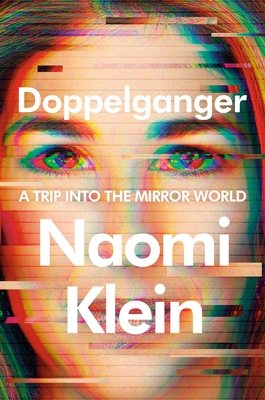More on this book
Community
Kindle Notes & Highlights
What does it mean for young people to grow up knowing that every casual photo, video, and observation posted online could, when they are years older, be the thing that keeps them from getting a job, or getting into a school, or getting approved for an apartment? And, conversely, what does it mean when those same posts—trying on a cute outfit, dancing alone in their rooms—could also be the ticket to influencer fame and riches? Given the huge stakes, what do they do, and what don’t they dare even try?
At best, a digital doppelganger can deliver everything our culture trains us to want: fame, adulation, riches. But it’s a precarious kind of wish fulfillment, one that can be blown up with a single bad take or post.
it is when everyday people lose their capacity for internal dialogue and deliberation, and find themselves only able to regurgitate slogans and contradictory platitudes, that great evil occurs.
we should not fear having voices in our heads—we should fear their absence.
On the democratic socialist left, we favor social policies that are inclusive and caring—universal public health care, well-funded public schools, decarceration, and rights for migrants. But left movements often behave in ways that are neither
inclusive nor caring. And in contrast to Bannon’s courting of disaffected Democrats, we also don’t put enough thought into how to build alliances with people who aren’t already in our movements. Sure, we pay lip service to reaching out, but in practice most of us (even many who claim to be staunchly anti-police) spend a lot of time policing our movements’ borders, turning on people who see themselves as on our side, making our ranks smaller, not larger.
And there is something else that I have noticed while listening to Bannon—he sticks, fairly judiciously, to the issues whe...
This highlight has been truncated due to consecutive passage length restrictions.
This, once again, is the opposite of what happens on large parts of the left. When we have differences, we tend to focus on them obsessively, finding as many opportunities as possible to break apart. Important disagreements need to be hashed out, and many conflicts that arise in progressive spaces are over behaviors that, when unchallenged, make those spaces unwelcoming or dangerous for the people they target. But it’s not a great secret that plenty of people routinely go too far, turning minor language infractions into major crimes, while adopting a discourse that is so complex and
...more
Moreover, when entire categories of people are reduced to their race and gender, and labeled “privileged,” there is little room to confront the myriad ways that working-class white men and women are abused under our predatory capitalist order, with left-wing movements losing many opportunities for alliances that would make us stronger and more powerful.
This is Bannon’s tone much of the time: warm, welcoming, protective of his “community,” constantly praising listeners for their kindness, intelligence, and courage. All of it is designed as a rebuke to the harshness, snobbishness, sectarianism, and identity absolutism on parts of the highly educated left. Of course, Bannon has another mode—the one in which he bares his teeth and threatens to put “heads on pikes.” But that mode is reserved exclusively for his enemies.
This speaks to the quicksand underpinning our age: the confusion between saying/clicking/posting and doing. The tension between the virtual nature of lives led in the blue glow of screens and the reality of the embodied labor (digging, harvesting, soldering, sewing, scrubbing, boxing, hauling, delivering) and material inputs (oil, gas, coal, copper, lithium, cobalt, sand, trees) that makes it all possible.
In recent years, left social movements have won huge victories in transforming the way we talk about all kinds of issues—billionaires and oligarchic rule, climate breakdown, white supremacy, prison abolition, gender identity, Palestinian rights, sexual violence—and I have to believe that those changes represent real victories, that they matter. And yet, on almost every front, tangible ground is being lost.
He didn’t have time. He was too busy drafting policy positions on real crises: water shortages because of chronic drought, skyrocketing rents and high housing costs, inadequate public transit, the logging of our last old-growth
forests. Sweet man: he still thought reality was on the ballot.
the Nazis relaxed vaccination programs in Germany and actively opposed them in the lands they annexed precisely because they favored the die-off of non-Aryan populations.
When we get vaccinated against diseases that pose a greater threat to other members of our communities than they do to us, we are saying that all people, no matter their bodily impairments or challenges, are of fundamentally equal value and have a right to equally access the public sphere and a good life.
the idea that we should think and function as communities of enmeshed bodies with different needs and vulnerabilities flies in the face of a core message of neoliberal capitalism: that you are on your own and deserve your lot in life, for better or worse.
some prominent anti-vaxxers have taken to calling themselves “purebloods,” since their blood is supposedly untainted by the jabs, never mind the term’s chilling supremacist overtones.
Asperger’s jarring career trajectory demonstrates that, in just a handful of years, the same institutions and some of the very same people can shift from an ethos of care and curiosity toward a vulnerable group to one of callousness and genocidal cleansing. As if a switch has been flipped. As one Covid year followed another and my doppelganger and the forces she helped incite spread new waves of panic about how all of us who have been vaccinated have lost our souls, like those changelings, or had impure blood, this was the form of doppelganging that increasingly preoccupied me: how, precisely,
...more


